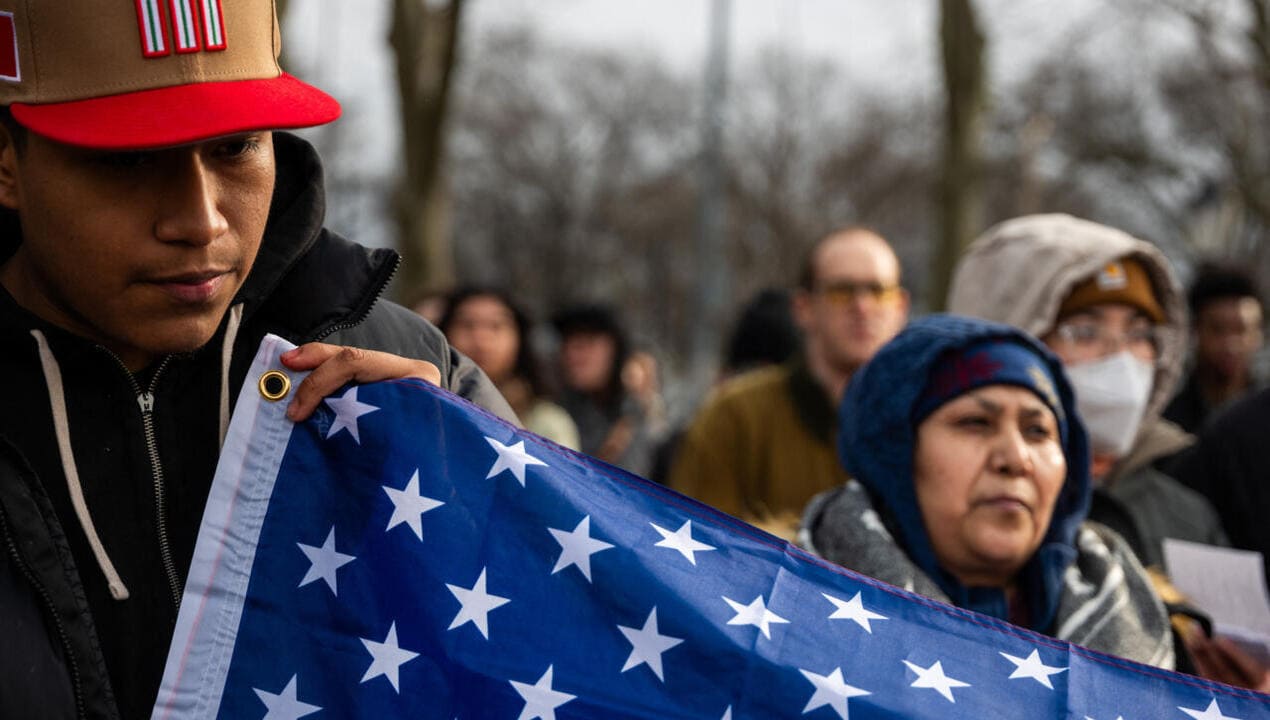
Independent Report – The U.S. Supreme Court recently allowed the Trump administration to resume deporting migrants to countries other than their own, without giving those migrants an opportunity to explain the dangers they might face upon return. This ruling marks another significant win for President Trump in his ongoing effort to carry out widespread deportations.
The court’s decision came in response to a judicial order that had required the government to give migrants, who were being deported to so-called “third countries,” a meaningful chance to voice fears about potential torture or harm in the destination country. This order, issued by U.S. District Judge Brian Murphy in Boston on April 18, aimed to ensure migrants received due process protections before being removed. However, the Supreme Court lifted this order while a legal challenge against the policy continues to proceed.
The Supreme Court’s brief and unsigned ruling did not provide any explanation, which is typical for emergency decisions. The court’s conservative majority, composed of six justices, supported the administration’s request. However, the three liberal justices strongly dissented. Justice Sonia Sotomayor, joined by the other liberal justices, sharply criticized the ruling, calling it a “gross abuse” of the court’s power. She expressed deep concern about the potential suffering of thousands of migrants who could face violence in unstable regions without a fair chance to present their cases. Sotomayor described the court’s decision as both incomprehensible and inexcusable.
Judge Murphy had previously determined that the administration’s policy likely violated the U.S. Constitution’s due process guarantees. These protections generally require the government to provide notice and an opportunity for a hearing before taking actions that could harm individuals. After the Department of Homeland Security accelerated deportations to third countries in February, immigrant rights groups filed a class action lawsuit. They sought to stop the government from deporting migrants without informing them or allowing them to raise concerns about their safety.
Murphy’s rulings included a notable case involving a group of migrants scheduled for deportation to South Sudan, a country the U.S. State Department warns Americans to avoid due to crime, kidnapping, and armed conflict. Murphy found that the Trump administration violated his order designed to protect these migrants. Because of the judge’s intervention, these individuals were kept at a military base in Djibouti instead of being forcibly sent to the dangerous region.
Also Read : Thunder Secure NBA Championship with Game 7 Victory Over Pacers
Despite the Supreme Court’s lifting of the April 18 injunction, Judge Murphy clarified that his later ruling on May 21, which barred rapid deportations of migrants to South Sudan, remained fully in effect. This ongoing legal battle highlights the complex and often contentious nature of the Trump administration’s immigration policies.
Trina Realmuto, the executive director of the National Immigration Litigation Alliance, which represents the plaintiffs, described the Supreme Court’s decision as horrifying. She warned that removing due process protections exposes vulnerable migrants to the risk of torture and even death, stripping away vital legal safeguards.
The administration defended its third-country deportation policy, arguing that it already complies with due process requirements and is necessary for removing migrants who have committed crimes. Officials claimed that many migrants targeted for deportation had committed serious offenses such as murder, arson, and armed robbery, and that their home countries were unwilling to accept them back. A White House spokesperson framed the Supreme Court’s ruling as a reaffirmation of the president’s authority to deport criminal illegal aliens and to keep the country safe. Department of Homeland Security officials also expressed strong support for resuming deportations.
This case is just one among numerous legal challenges to Trump’s immigration policies that have reached the Supreme Court since his return to office in January. Earlier in the year, the court allowed the administration to end humanitarian programs protecting hundreds of thousands of migrants. However, the court also criticized aspects of Trump’s efforts to remove migrants under the Alien Enemies Act, a law from 1798 historically used during wartime, citing concerns about due process.
Justice Sotomayor pointed out that the administration had disregarded two court orders issued by Judge Murphy by sending migrants to South Sudan, Guantanamo Bay, Cuba, and El Salvador. She warned that the court’s repeated willingness to grant relief to the administration despite noncompliance erodes respect for the judicial system and the rule of law.
The government sought Supreme Court intervention after the 1st U.S. Circuit Court of Appeals refused to stay Murphy’s injunction. Additionally, reports have surfaced that U.S. officials have considered deporting migrants to Libya, a country the U.S. government has previously condemned for its harsh treatment of detainees, further raising concerns about the safety of migrants subject to these policies.
Overall, the Supreme Court’s recent decision marks a crucial moment in the ongoing debate over immigration enforcement, due process rights, and the treatment of vulnerable migrants facing deportation to unstable countries.
Also Read : AI vs Human Creativity: Can Machines Truly Feel